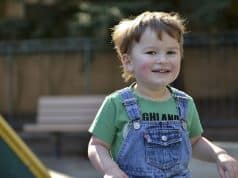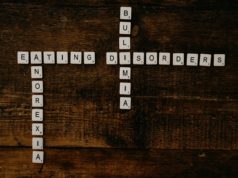It is said that the effective teacher of adult students abide by a single motto—Learners first (Rogers, 2001). Teaching and learning aim for the attainment of cognitive (intellectual), affective (values, attitudes, and feelings) and psychomotor (motor skills)—embodying the so-called imperatives to acquire skills, knowledge and attitude (SKA) in nursing education (Anderson & Krathwohl, 2001; Huitt, 1992; Bloom et al., 1956). Munn says that, more or less, learning is a permanent change in behavior as a product of observation, training, and activity (either personal or teaching) (Kahayon & Aquino, 1995). In the same vein, Hilgard and Edwards suggest that learning is an alteration in behavior due to reinforced practice (Kahayon & Aquino, 1995).
The Theory of Adult Learning—Andragogy, was introduced by Malcolm Knowles (1913-1997) in 1968 (Añonuevo et al., 2000). This theory aims to establish a theory, particularly for adult learning. Knowles (1975) avers that adults expect to assume responsibility for their decisions and are self-directed.
Principles of Knowles (1984) in application to nursing education
- Adults must take part in the planning and assessment of their own education. Each lesson must be explained. Students must be aware of and understand the rationale behind certain procedures or information.
- Experience (both right and wrong) offers the foundation for learning activities. Instead of memorization, instruction must be task-oriented (learning activities must be in line with the usual tasks done). “Experience is the best teacher”. Nursing education is not only a matter of memorization but also of understanding, internalization and application.
- Adults give more attention to learning instruction that have immediate importance to their personal life or career. Lessons must consider the learners’ big array of diverse backgrounds. Learning activities and materials must enable for varied types/stages of previous experiences.
- Instead of focusing on content, adult learning is problem-oriented. Being self-directed, adults must be allowed to learn things on their own, giving assistance in times of mistakes so as to prevent similar occurrences to happen. In nursing, committing mistakes is a very good way to learn. However, this is not so in life-and-death situations.
Four key assumptions on learning design were used as the premise of Andragogy (Knowles, 1975). In 1984, another one was included, and these are:
- Changes in Self-concept. As one becomes mature, a person’s self-concept changes from being dependent on an independent one (Knowles et al., 1984). It is important that adults know the reason for learning something (Knowles, 1975). Two key competencies that students must have are critical thinking and decision making to enable them to become self-determining in their work. Students can employ scientific, rational, and critical thinking when making decisions. Due to this approach, students will be more independent in their future lives.
- Role of Experience. As an individual becomes mature, he/she increases his/her experience which ultimately becomes a potent source for learning (Knowles et al., 1984). To truly learn a thing, an adult must experience that thing (Knowles, 1975). In nursing, the Related Learning Experience (RLE) plays a vital role in the learning and application of a theory. Experience can be gained through hands-on, actual experience (i.e., RLE/OJT) and the use of lectures, audio-visual presentations, readings, skills laboratory, simulation, and projects. It is considered that an experienced teacher is a more effective teacher that is why experience is an imperative qualification in a teaching job (both in the hospital and academe). A teacher can share his/her experiences while interacting with students during lectures, sharing, and reflections.
- Readiness to learn. As a person matures, his readiness to learn becomes oriented increasingly to the developmental tasks of his social roles (Knowles et al., 1984). Adults approach learning as problem-solving (Knowles, 1975). Readiness to learn is best assessed with proper preparation. It is the responsibility of the teacher to prepare the students, while it is the student’s responsibility to be prepared.
- Orientation to learning. As one matures, the perspective of a person shifts from suspended use of knowledge to immediate use, likewise, his/her learning orientation changes from subject-oriented learning into one that focuses on problems (Knowles et al., 1984). If the lesson is of immediate importance, adults learn the fastest (Knowles, 1975). A workshop-style teaching strategy provides an immediate application of learning. More than discussions, the preferred mode of teaching is through activities. During lectures, however, it is encouraged that adults engage in socialized discussion to promote interactive involvement and participation of students in the learning process.
- Motivation to learn. As one matures, the motivation of a person to learn is within him/her (Knowles et al., 1984). Since motivation is the most important part of learning, appropriate motivation is imperative to support learning.
Knowles’ theory was also utilized on the concepts of learning and self-direction which can be used in the nursing process and can then be used by learners and teachers (Knowles et al., 1984).
1. Diagnosing learning needs.
2. Formulating learning needs.
3. Identifying human material resources for learning.
4. Choosing and implementing appropriate learning strategies.
5. Evaluating learning outcomes.
Application of Knowles’ Theory of Andragogy
Andragogy, in practical terms, means that adult education must concentrate more on the method more than the lessons. And the most useful of these include self-evaluation, simulations, role-playing and case studies. Instead of assuming the usual role of a lecturer or grader, instructors take on the function of a resource person or facilitator. Applicable to any type of adult education, Andragogy has been extensively used in designing programs for organizational training, particularly for ‘soft skill’ areas like management development (Knowles, 1975). However, adult learning theories are based on the exclusive traits of adults as learners, thus prompting the need for special teaching approaches. Nursing education is based on a perfect example of the more recent adult-oriented learning methods, which can be used as a guideline in program development and training activities. More than anything else, adult learning strategies must always address the unique characteristics of adult learners.
References
- Anderson, L.W. & Krathwohl, D. (Eds.). (2001). A Taxonomy for Learning, Teaching, and Assessing: A Revision of Bloom’s Taxonomy of Educational Objectives. New York: Longman. Añonuevo, C.A. et al. (2000).
- Theoretical Foundations of Nursing. Los Baños, Laguna: UP Open University, 268–270. Bloom, B., Englehart, M., Furst, E., Hill, W. & Krathwohl, D. (1956).
- Taxonomy of Educational Objectives: The Classification of Educational Goals. Handbook I: Cognitive Domain. New York, Toronto: Longmans, Green. Huitt, W. (1992).
- Problem Solving and Decision Making: Consideration of Individual Differences Using the Myers-Briggs Type Indicator. Journal of Psychological Type, 24, 33-44.
- Kahayon, A.H. & Aquino, G.V. (1995). General Psychology, 3rd ed. Manila: National Bookstore, 155–164. Knowles, M.S. (1975). Self-Directed Learning. Chicago: Follet. Knowles, M.S. (1984).
- The Adult Learner: A Neglected Species, 3rd ed. Houston, TX: Gulf Publishing Company. Knowles, M.S. et al. (1984) Andragogy in Action. Applying Modern Principles of Adult Education. San Francisco: Jossey Bass, 12. Rogers, J. (2001).
- Adults Learning, 4th ed. Philadelphia: Open University Press, 6.








after knowing about knowles theory i am motivated.cnt stop learnig untill i reach to the top in Jesus name